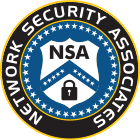In a world that is spending almost as much time online as off, it is becoming ever more vital that we use safe internet browsing practices.
While there are some obvious things to avoid (i.e., there is NOT a Nigerian prince that needs to move some of his assets overseas into your bank account), we wanted to take a few minutes to give you a refresher on how to stay safe online.
First things first, use a good antivirus! We recommend Trend Micro Antivirus for both business and personal use, but having some sort of antivirus/firewall installed on your computer is always a good first step. This is your first line of defense from malicious software, and will notify you when you are browsing a website that is not trustworthy. Also, most antivirus software will have a scan function that you can schedule to scan your computer for any viruses or malicious software that may have found their way on to your machine. Additionally, it is important to renew the maintenance on your antivirus yearly, as it should be updated often in an effort to keep up-to-date with new threats.
I alluded to this above, but it is very important to use safe browsing habits. Do not visit websites that you do not know and trust, and do not click fishy looking advertisements found on the side or across the top of websites. In addition to websites, viruses can be found in spam emails, so always make sure you know and trust the sender of an email before opening any links within an email. A good practice when using the internet is to only stick to websites that are reputable – when in doubt, close it out!
Over the course of a computers life, users will have to download and install various programs. Unfortunately, it is quite common for malicious software and programs to be bundled within various downloads and installs found online. In some cases the installation of a valid program gives you the option to skip installing an annoying or harmful bundled application. Read every step/page of the install very carefully and only install the programs you want. This is a good way to avoid downloading any unwanted programs or even viruses to your computer. On occasion you may receive a call from a number you don’t recognize, with the person at the other end of the line claiming to be some sort of tech support from a major tech company (Microsoft, Apple, etc.). They will tell you that your computer has a virus and they either need to access your computer to take care of it, or you need to give them your card info to buy antivirus software. These are scams, with the intention being either to plant a virus in your computer, or get your credit card info. No tech company will call you out of the blue, so if anything remotely similar to this happens, do not fall for it – hang up. If you are still not sure if it is a scam or not, give us a call (330-236-1011) and we will be happy to help you figure things out!
On occasion you may receive a call from a number you don’t recognize, with the person at the other end of the line claiming to be some sort of tech support from a major tech company (Microsoft, Apple, etc.). They will tell you that your computer has a virus and they either need to access your computer to take care of it, or you need to give them your card info to buy antivirus software. These are scams, with the intention being either to plant a virus in your computer, or get your credit card info. No tech company will call you out of the blue, so if anything remotely similar to this happens, do not fall for it – hang up. If you are still not sure if it is a scam or not, give us a call (330-236-1011) and we will be happy to help you figure things out!

Malware – any program designed to infect your computer.
PUP (potentially unwanted program/s) – programs that are bundled together with a program you are trying to download. For example, when you download Adobe Reader, it bundles the Ask.com toolbar with it. As said above, always remember to read every step of the install, and to uncheck any boxes that will add a program you do not want to install. Phishing – the attempt to gain personal information (usernames, passwords, even credit card information) while pretending to be a reputable company. The phone calls we touched on earlier is one example of phishing, but this can happen within emails and on websites as well. Ransomware – a type of virus that locks/limits user’s computer access until the user pays a fee. Ransomware will often disguise itself as an antivirus program. Just remember that no antivirus program will lock your computer until you pay, and if this is happening it is almost certainly ransomware. Worm – malware designed to spread across networks, generally using things like email, instant messenger, network shares, and peer-to-peer networks. Spyware – software that gathers personal information based on browsing habits, generally to be used for advertising. Spyware is usually found bundled in downloads, as we covered earlier. Bloatware – usually unnecessary features that are overloaded onto programs/applications. All of the extra applications pre-installed on computers out of the box. For example, several months ago Lenovo came under fire as they were shipping out laptops with a preinstalled application called Supperfish, which is actually spyware. Always be aware during installation of any extra features being added (i.e. toolbars, search engines, shortcuts).

